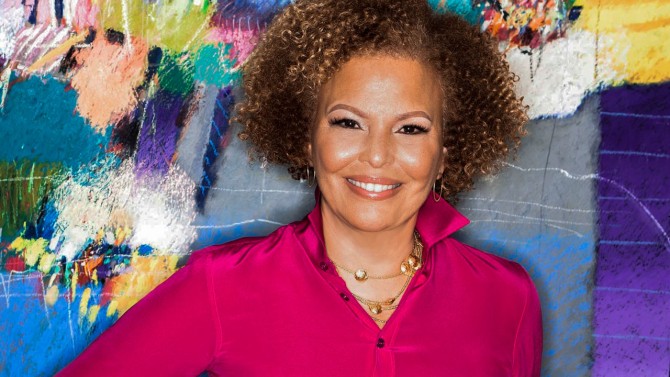Former CEO of BET shares her struggles, successes
By Grace DePaull
Debra Lee, former CEO of Black Entertainment Television (BET), spoke to the Cornell community Feb. 20 about her journey from growing up in the segregated South to shattering glass ceilings while becoming one of the most powerful businesspeople in America.
In a virtual webinar moderated by Sonia Rucker, associate vice president of the Department of Inclusion and Belonging, Lee discussed her struggles navigating the rough terrain of the entertainment industry as a Black woman. She candidly spoke about her relationships with her parents, children and BET founder Bob Johnson, which are all documented in her new memoir, “I Am Debra Lee.”
“Life is a series of questions you have to figure out on your own most of the time, and that even applies to being CEO of a company,” said Lee, who led BET from 2005 to 2018. “I wanted to write the high points and low points. I want young people, especially young girls, to know that you can still be successful even if you make mistakes or have missteps.”
For Rucker, the opportunity to speak with Lee was deeply personal.
“Like so many Black teenagers in the late ’80s and ’90s, I grew up watching BET,” Rucker said. “It was one of the few places on television where Black teenagers felt represented, visible and special. We may not have known who Ms. Lee was or the role she played, but for decades, BET put Black culture out there for the world to see and enjoy. It became our way to connect with others across the country, and Ms. Lee was inextricably tied to all those special memories we had growing up.”
Lee said her studies at Brown University and Harvard Law School prepared her for making difficult decisions regarding free speech, and recalled the moment she rejected a Kanye West music video from being televised on BET because of controversial content, taking a stance against the popular rapper.
“There was an added pressure when it came to handling situations that didn’t always paint women in a positive light,” Lee said. “So, I brought my feelings as a woman and mother into my decision-making. I used to say my kids were my internal focus group. Especially my daughter. I’d ask her, ‘What do you think of this?’ or ‘Does this video offend you?’ All I could do was make the best decisions I could at the time. But as a woman, I did feel more of an expectation to get it right.”
Christine D. Lovely, vice president and chief human resources officer, attended the webinar and acknowledged Lee’s legacy.
“Debra Lee is Black history,” Lovely said after the event. “She had such a significant impact on the Black pop culture and entertainment world that should be remembered. I hope attendees were inspired and appreciated that human stories are complex and multifaceted.”
At 65, Lee stepped away from the entertainment industry after more than 30 years at BET and now works to provide more opportunities for Black men and women in the corporate world. Lee is active as the founder of Women Defined, a foundation supporting Black female leadership, and is the co-founder of Monarchs Collective, a company that aims to change the complexion of board rooms and leadership ranks.
“I just feel like there’s too much else to do,” Lee said when asked whether she’s taken time to relax during retirement. “I’m looking forward to the next chapter. And there will be one.”
The webinar was co-sponsored by Cornell’s Department of Inclusion and Belonging; Hans Bethe House; the Cornell Nolan School’s Office of Diversity and Inclusion; the Dyson School of Applied Economics and Management’s Office of Diversity and Inclusion; Diversity Programs in Engineering; the Cornell Bowers CIS Office of Diversity, Equity, and Inclusion; the Women of Color Colleague Network Group; the Young Professionals Colleague Network Group; and Cornell’s Office of Workforce Engagement.
Grace DePaull is a writer for the Division of Human Resources.
Media Contact
Abby Kozlowski
Get Cornell news delivered right to your inbox.
Subscribe

